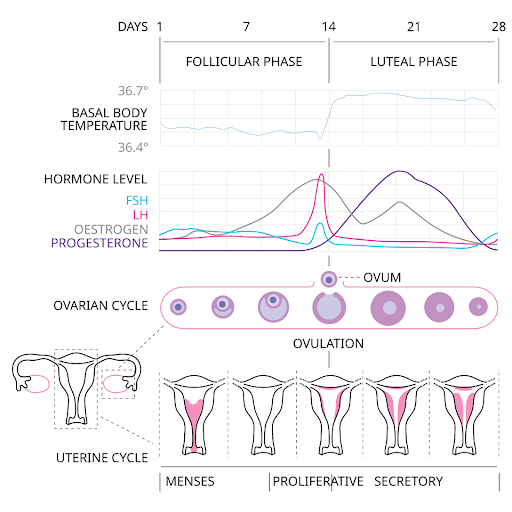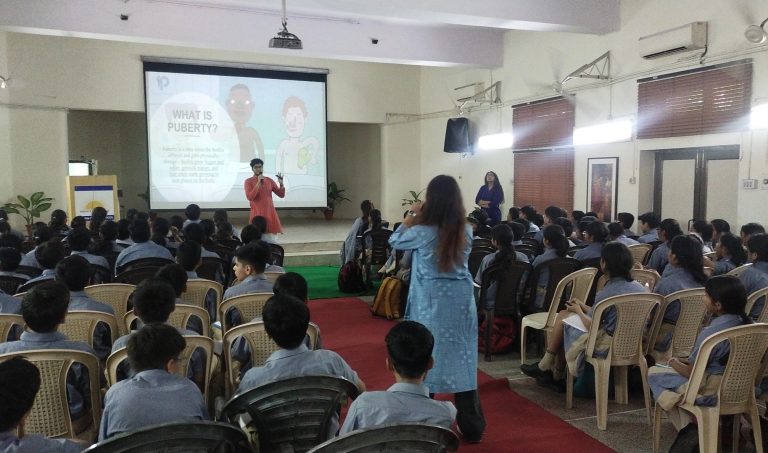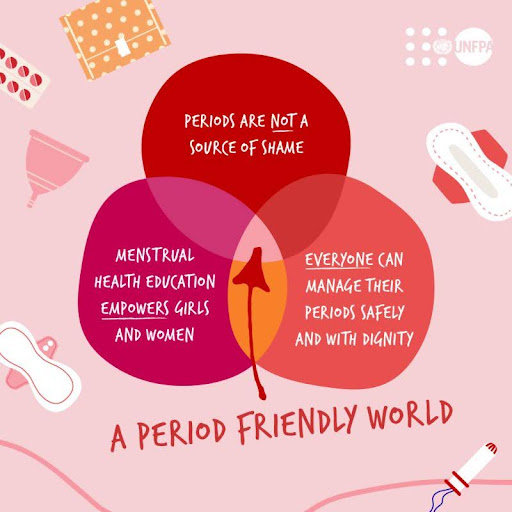Menstruation 101: Let's Bleed Out The Stigma!
- Menstrual health affects all genders.
- Education reduces stigma and shame.
- Inclusive dialogue fosters period equity.
Menstrual Health Shaping Public Health
Menstrual health is a public health priority. As per an article by The Better India in 2022 that 1 in 5 girls in India leave school after menarche due to shame and poor support systems. Globally, the top 100 cited menstrual health studies published by a group of AIIMS Bhubaneswar highlighted the urgent need for hygiene access, culturally sensitive education, and intersectional inclusion.

Understanding Menstruation Beyond The Binary
Menstruation is often seen as a “women-only” issue, but that perspective excludes many people. Not all women menstruate, and not everyone who menstruates identifies as a woman.
Trans men, non-binary, and gender-diverse individuals may also experience periods. This inclusive understanding is crucial to creating a world where menstrual health is recognized as a fundamental aspect of overall health, rather than a gender-specific taboo.
Still, the moment the topic of menstruation comes up, it’s often met with discomfort. It remains shrouded in secrecy across many cultures and communities. This silence not only keeps essential knowledge from reaching those who need it but also perpetuates harmful myths and stigma that make menstruators feel ashamed of their own bodies.
What is Menstruation?
Menstruation, commonly known as a “period,” is a natural biological process that occurs as part of the menstrual cycle. It involves the shedding of the uterine lining when pregnancy does not occur.
While the process is entirely natural, its impact extends beyond biology—it also affects mental health, education, productivity, and social participation.
The menstrual cycle generally spans 28 days but can vary from 21 to 35 days. It is divided into four key phases: (click images to read)
Menstrual Phase
(Day 1 to 5)
Bleeding begins; the uterine lining sheds.
Symptoms: cramps, fatigue, emotional sensitivity.
Tip: Rest and use hot compression, and painkillers can be taken for severe pain by consulting your doctor.
Follicular Phase
(Day 5 to 13)
Hormones stimulate egg growth.
Symptoms: higher energy, upbeat mood.
Tip: Good time for workouts and creativity!
Ovulation
(Day 14)
Egg is released; the most fertile phase and the crucial part of the unsafe period.
Signs: increased discharge, libido spike.
Tip: Listen to your body—hormones peak.
Luteal Phase
(Day 15 to 28)
Progesterone rises, body prepares for pregnancy.
Common symptoms: mood swings, cravings, bloating.
Tip: Stay hydrated and prioritize sleep.
Why do we need to talk about this?
Period stigma doesn’t just cause discomfort; it impacts lives. Many menstruators, especially in low-income and rural communities, face restrictions around daily activities, drop out of school, or suffer in silence through medical conditions like endometriosis because they’re told “it’s just part of being a woman.”
Even in more privileged spaces, menstruation is treated as something to be hidden—pads are slipped up sleeves, whispers replace direct conversation, and discomfort governs how we talk about periods. But when we begin to treat menstruation like what it is—a normal bodily function—we chip away at the shame.
Education is the strongest tool we have to normalize periods and ensure that no one feels lesser or left behind because of them.
More than Biology: The Emotional and Social Impact
Periods don’t just bring physical changes; they impact emotions and mental health too.
Hormonal shifts during the cycle can lead to mood swings, cravings, irritability, or even depressive episodes.
Sadly, many menstruators feel the need to hide their emotional state or are told they’re “overreacting,” when in fact their feelings are valid and biologically influenced.
The social burden adds another layer. From being excluded from religious practices to missing school or work due to lack of facilities, menstruation intersects with inequality in very real ways. When people feel they must pretend they’re not on their period to be treated equally, society fails them.

The role of Caregivers, Schools, and Communities
Change begins at home and in schools. Parents, especially fathers, should talk openly about menstruation. Teachers must foster classroom environments where menstrual health is discussed without giggles or shame. Peers should be supportive rather than judgmental.
Providing menstrual products, clean bathrooms, pain relief support, and emotional validation can make a huge difference in a young person’s life. Caregivers, educators, and mentors can create a ripple effect that normalizes periods for future generations.
Inclusiveness of Men as Allies
Menstrual education is incomplete if it excludes boys and men. Teaching them about menstruation from an early age fosters empathy and reduces teasing or misconceptions. Boys who learn that periods are natural become partners and leaders who support menstrual equity. They grow up to challenge the structures that keep menstrual stigma alive – be it in boardrooms, policies, or households.
Breaking the Silence
There is no shame in menstruation, only in the silence that surrounds it.
When we speak openly about periods, we help build a world where every menstruator feels seen, supported, and empowered.
We don’t just break taboos, we build new, inclusive narratives that honor the diverse experiences of all who menstruate.
Let’s make space for these conversations. Let’s demand education that includes everyone. Let’s uplift the voices of menstruators. And most importantly, let’s bleed out the stigma, together.

- Menstrupedia: https://www.menstrupedia.com/
- UNICEF Menstrual Health and Hygiene: https://www.unicef.org/wash/menstrual-hygiene
- Period Positive: https://www.periodpositive.com/
Author

